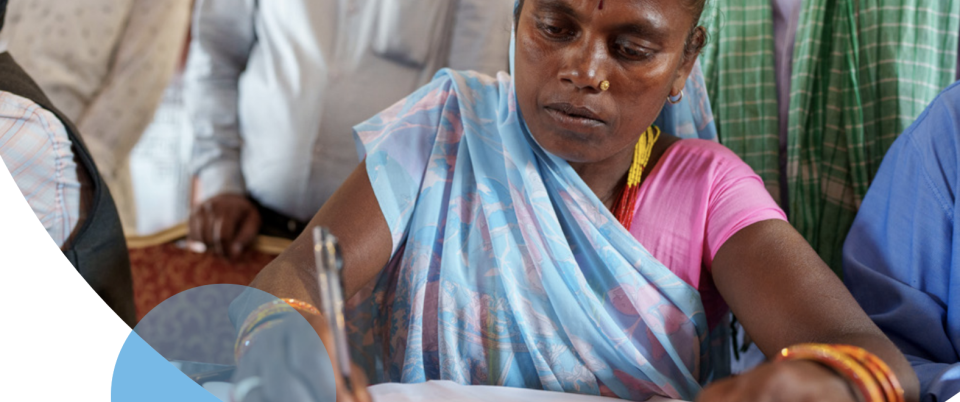This project, supported by the Freedom Fund, examines modern slavery risks among people lacking documentation. It explores the issue globally, including in Brazil, Kenya, and Nepal. The main objectives of this research project are to identify actionable mechanisms and inform responses by civil society organizations (CSOs) in the three countries; generate practical policy recommendations; provide credible evidence to inform responses from multilateral institutions; and aid funders towards this vulnerable population.
The project aligns with UN SDG Target 8.7, which focuses on eradicating forced labor, modern slavery, human trafficking, and child labor. By addressing vulnerabilities of marginalized groups, it supports the UN's goal of inclusivity. The project's research on documentation and access to justice aligns with global human rights protection.
This project also aligns with the overarching mission of UNU, which is dedicated to addressing critical global challenges concerning human survival, development, and welfare, as articulated by the United Nations, its Member States, and the global community. While it is widely recognized that the lack of proper documentation can worsen vulnerabilities, there exists a notable research gap in this area. Consequently, this study is specifically designed to bridge this gap and thereby contribute to addressing key knowledge deficits that are central to UNU's mission.
The project's primary objective is to investigate the nexus between modern slavery risks and access to official documentation in Brazil, Kenya, and Nepal. This understanding can help these nations identify and tackle the root causes of modern slavery, ultimately enhancing the well-being of their populations. Existing research has demonstrated that addressing slavery and promoting freedom, along with enhancing economic agency, can significantly contribute to accelerating economic growth and reducing poverty.
Research outputs:
- Modern slavery risks among people lacking official documentation (Global evidence review)
- Bridging the identity gap: Policy recommendations for improving documentation and reducing modern slavery risks in Nepal (Policy brief)
- No identity, no protection: How lack of documentation drives modern slavery (Report)
- No identity, no protection: Global recommendations for addressing documentation gaps to combat modern slavery (Policy brief)
- Addressing documentation and modern slavery risks in Kenya (Policy brief)
- The documentation divide: Understanding pathways to modern slavery among undocumented populations in Brazil (Policy brief)
Gender Mainstreaming in Research
This project contributes to the following gender equality goals:
- Increased equality of participation in economic, political, civil, and/or social spheres
- Equal access to work opportunities
- Implementation of laws and policies that reduce gender discrimination
- Researching how experiences may differ by gender in the project’s field of interest
- Practices to be implemented in order to facilitate gender mainstreaming through this project.
Our methodology design implements a gender mainstreaming approach while giving meticulous attention to documenting and exploring gender differences and inequalities. Additionally, gender considerations are integrated into the evaluation criteria for assessing methodologies, strategies, impacts, and outputs. To underscore gender-specific trends and disparities, we disaggregate our data by sex. The literature review conducts a gender analysis to assess how the absence of documentation may be influenced by or impact gender dynamics. We will continuously review our research and outputs to ensure gender inclusivity.
While the project team lead and most key team members are female, we have male team members available for data collection and interviews as needed. Additionally, all our case study leads are well-versed in matters related to gender. Throughout the research process the project actively engages with women and men from diverse and marginalized groups to ensure their unique perspectives are well-represented; and we proactively identify gender-specific findings and recommendations, particularly those aimed at addressing gender disparities at the policy level. We are committed to making concerted efforts to engage a broad range of audiences and facilitate knowledge sharing - ensuring that our research findings make a meaningful impact on gender mainstreaming and contribute to greater gender equality.
Objectives and expected outcomes
The goals of this research are to:
- Produce credible, action-oriented research in three focus countries (Nepal, Brazil, and Kenya) to highlight sub-groups who lack documentation that puts them at greater risk of modern slavery, including the social and economic structures that exacerbates the risks faced by these populations.
- Share practical recommendations on policies and programmes that are informed by the experiences of survivors of trafficking and realistic for the countries in focus.
- Inform future actions—especially among policymakers and aid funders—about the population of undocumented citizens and workers, and their specific vulnerabilities to human trafficking.
Beneficiaries
Survivors of Modern Slavery and Vulnerable Communities: The programme aims to give voice to survivors and vulnerable communities by conducting interviews and research to understand their experiences and perspectives. By doing so, it empowers them to contribute to the development of solutions that enhance their agency and support their reintegration into society.
Local Partners and Civil Society Organizations: Local partners collaborating with UNU-CPR in each of the focus countries (Brazil, Kenya, and Nepal) are integral beneficiaries. They gain opportunities for capacity building, networking, and data-driven insights to inform their advocacy and support for vulnerable populations.
Policy Officials: Policymakers and government officials at the national and local levels are beneficiaries of the research findings and recommendations. The programme generates evidence that can guide the development of policies and strategies to address modern slavery risks associated with a lack of official documentation.

